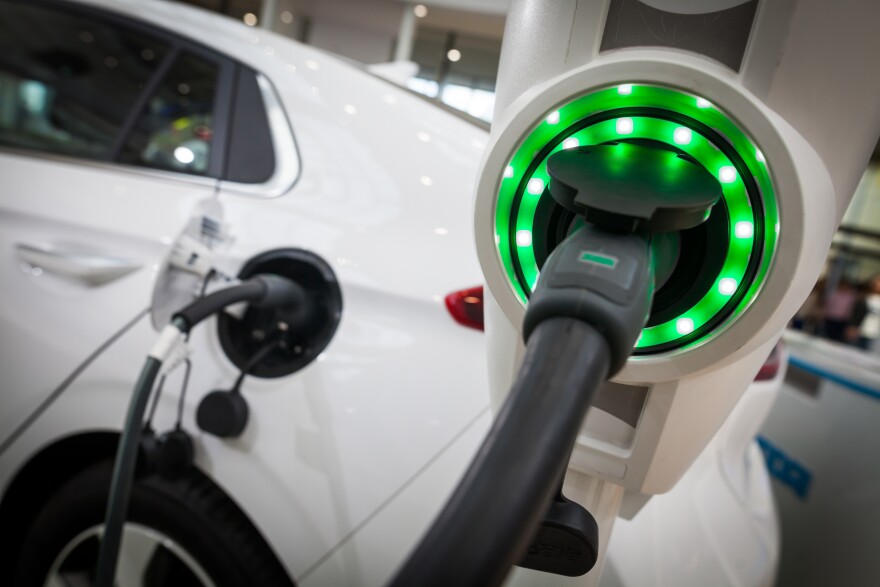As of July 2020, less than 1% of Floridians were driving hybrid or electric cars. That's according to the Florida Department of Transportation's in-house consultant Tanner Martin. He says there are many reasons people forego hybrid or electric vehicles—like the high cost and lack of available models. Martin also says a shortage of charging stations in rural areas means people could be afraid to drive long distances.
"So, once we have vehicles with longer range and we have [an] adequate supply of EVSE in the state, i.e., charging stations, this range anxiety will decline significantly," Martin says.
Martin says that if the state creates more infrastructure to support electric and hybrid vehicles, it could encourage more people to buy them. The Florida Department of Transportation has been putting together a plan to add more charging stations to the state highway system. Martin says priority will go to certain areas.
"We look at evacuation priority. So which facilities within the state highway system can best serve the movement of travelers out of the state or to other parts of the state," Martin says.
Other priorities include places with high traffic and short drive times from intersections. During today's stakeholder webinar for the state's Electric Vehicle Infrastructure Master Plan, the issue of natural disasters came up.
When hurricanes strike Florida, sometimes people have to evacuate. Most can fuel their cars on the road, but finding a charging station on the highway can be difficult for those with electric vehicles. Florida Department of Transportation's Jennifer Fortunas says her agency is considering using trailers with charging hookups.
"We feel that this is the best way to be nimble and respond to a particular storm's path. So that's one of the things that we're looking at," Fortunas says.
The trailers would be juiced up off-site and then moved to where there are surges in traffic from evacuations. The agency is looking into an agreement with nearby states to share the mobile charging stations.





